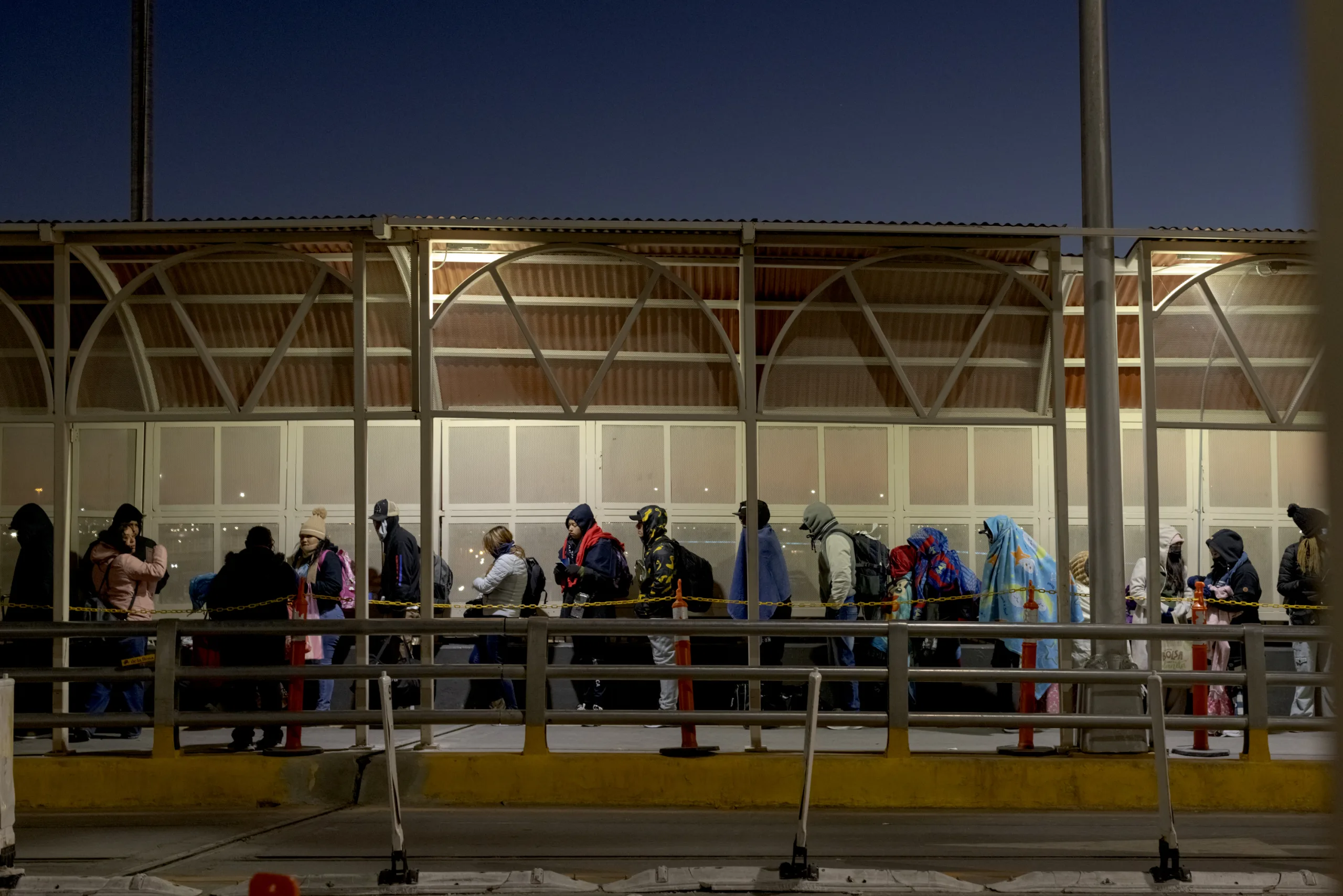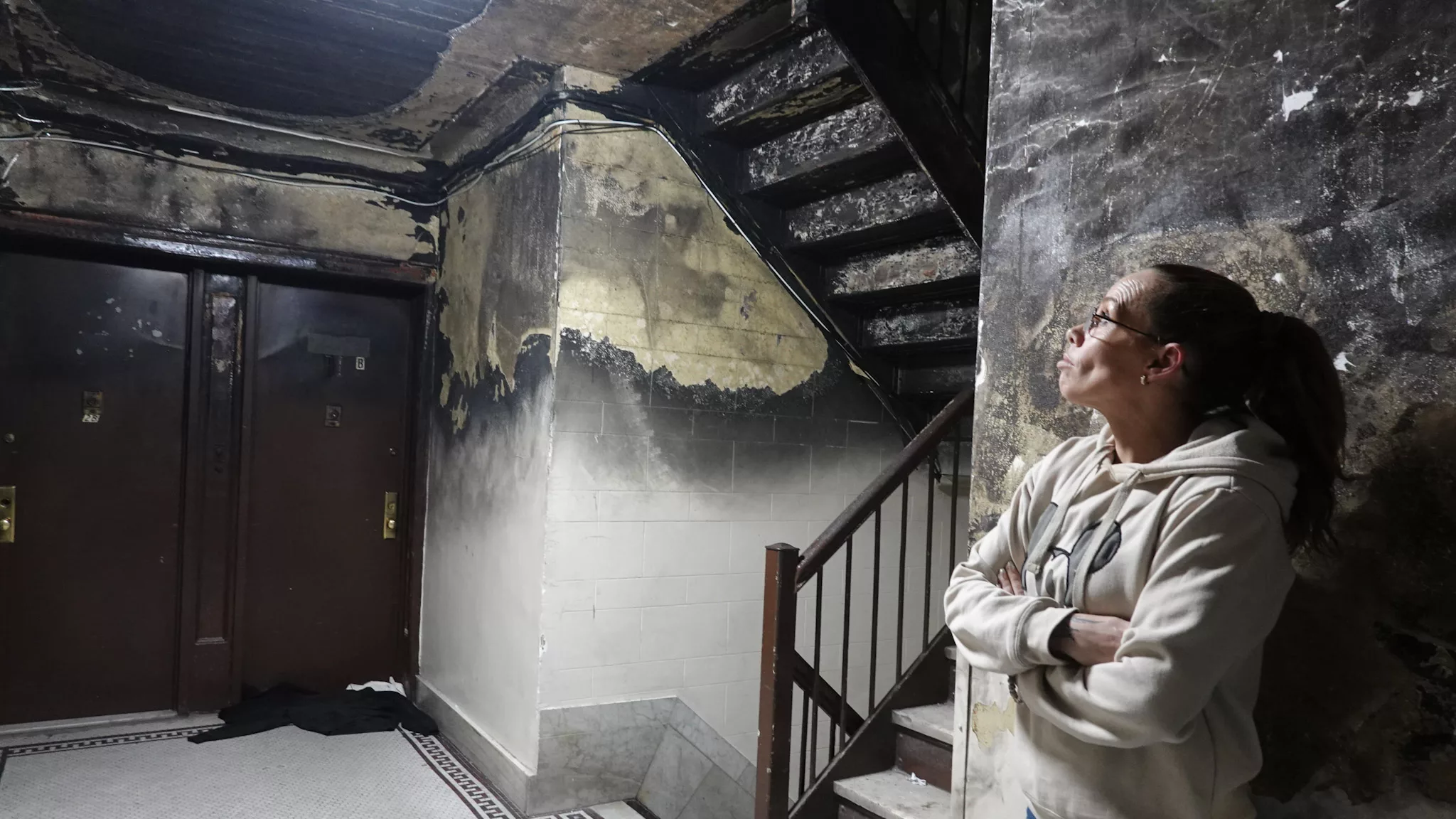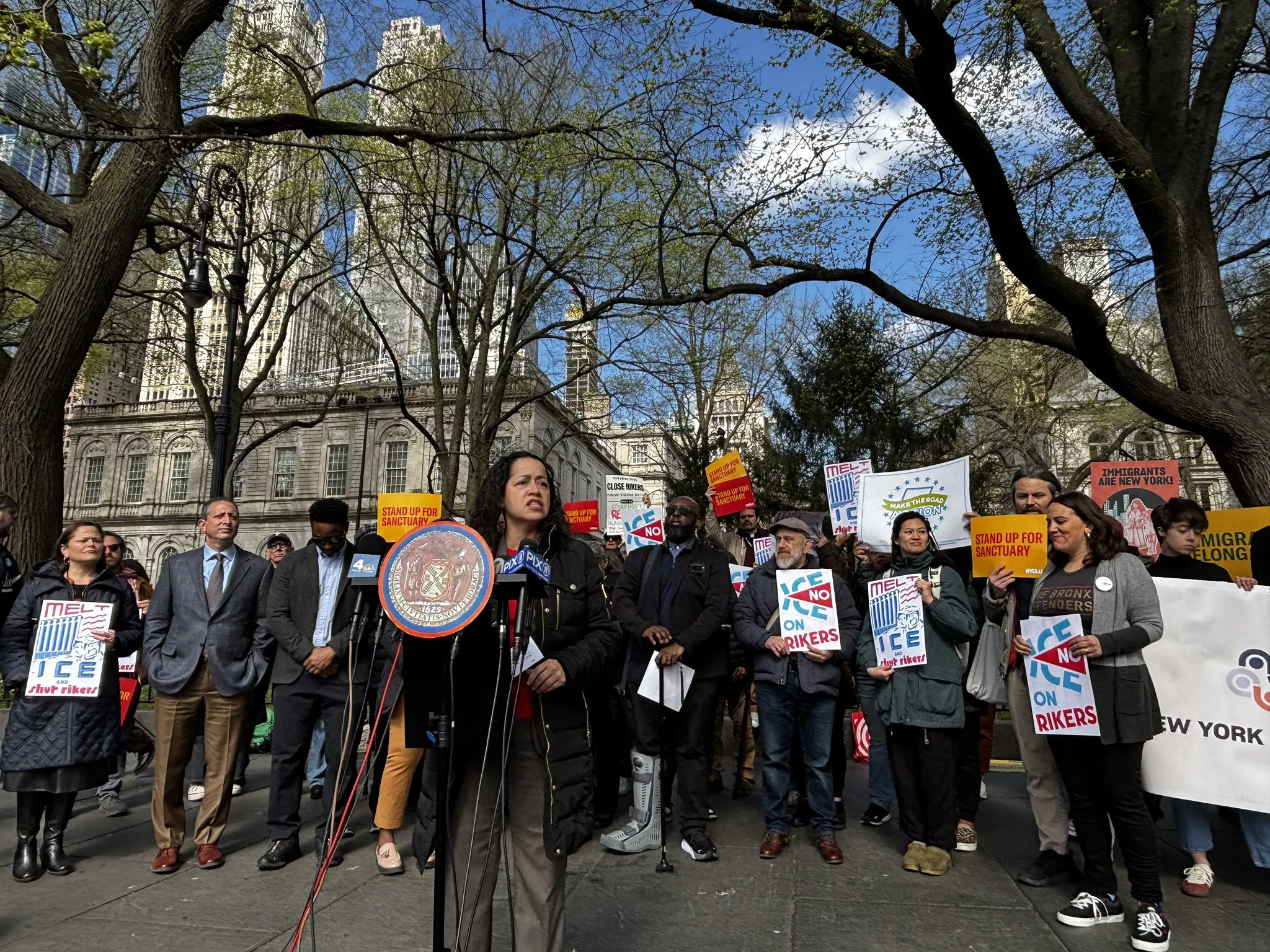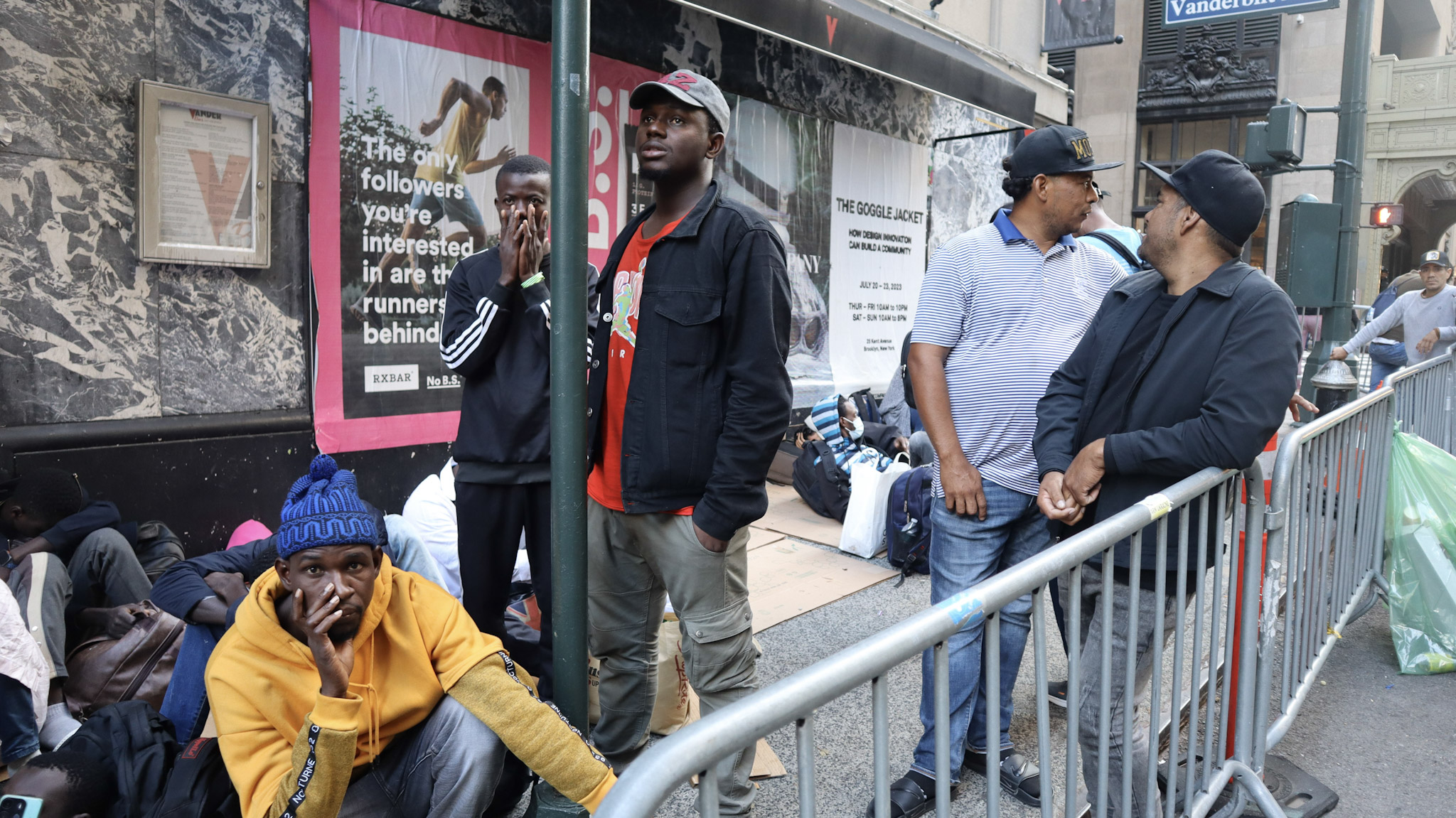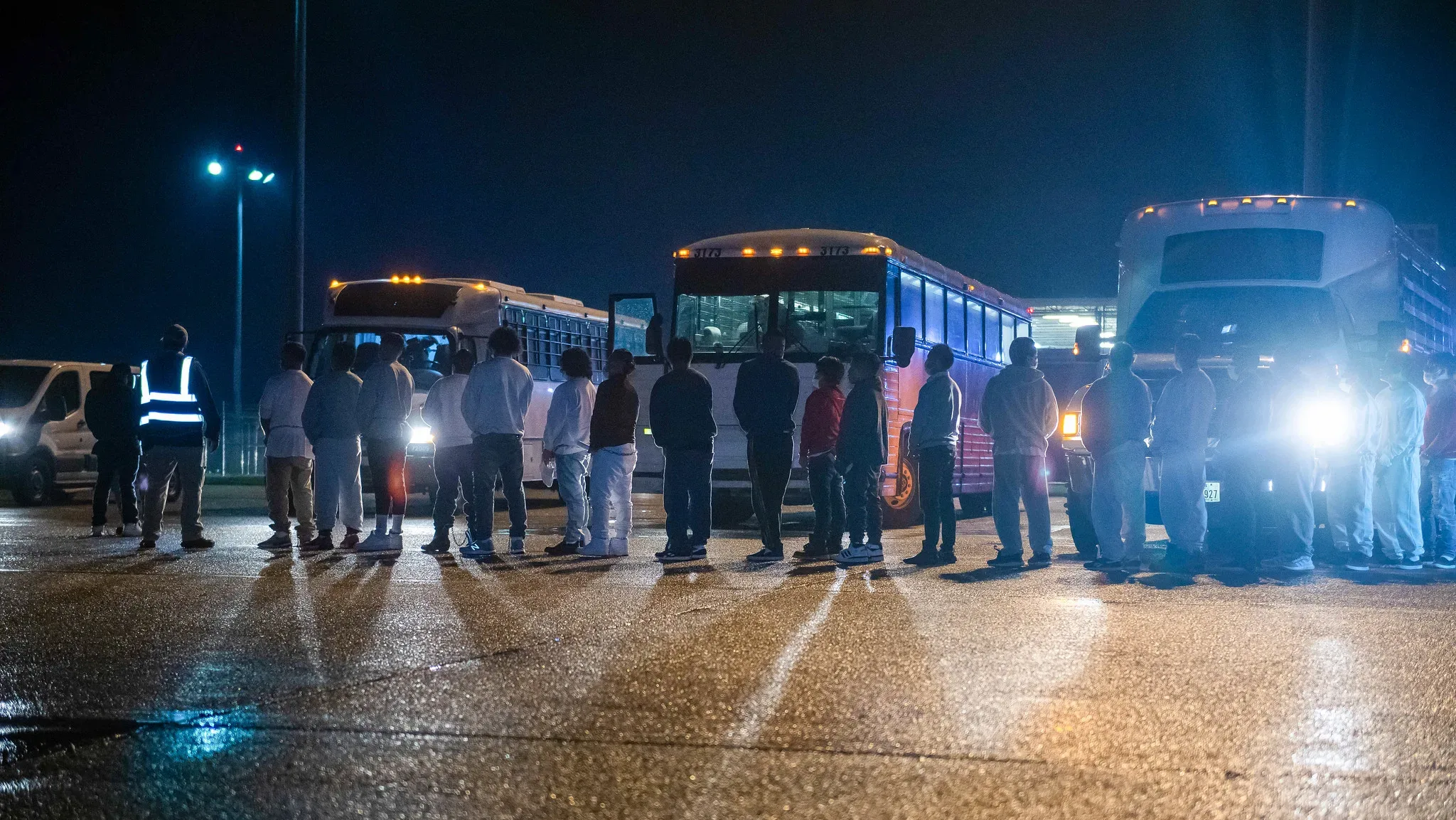The Trump administration said it will revive a World War-II era law requiring immigrants to register with the federal government, but law experts say the move is meant to generate fear and it’s too early to say how the process will work.
Homeland Security Secretary Kristi L. Noem said on Feb. 25 that immigrants 14 and older who didn’t enter the country with a visa must register with the federal government within 30 days of arriving, including providing fingerprints. Those who register must carry proof, and failing to register could lead to criminal prosecution and imprisonment, Noem’s announcement said.
In the DHS announcement, which comes after President Donald Trump mentioned plans for a registry in one of his Jan. 20 executive orders, the administration linked the plan to a larger ad campaign urging immigrants to self-deport.
“For decades, this law has been ignored — not anymore,” last week’s DHS news release said.
However, immigration lawyers say the law can’t be enforced yet because the government hasn’t created a form for people to register. The Trump administration told immigrants who are not registered to create an online profile with U.S. Citizenship and Immigration Services (USCIS), where it said a process to register will eventually become available.
“Right now, there are a lot of unknowns,” said Elora Mukherjee, a Columbia Law School professor who directs the school’s Immigrant Rights Clinic. Mukherjee said in an interview Monday that immigrants are already reaching out to ask if they should register themselves or their children.
Experts say the registration requirement is meant to instill fear within the immigrant community, where some have already taken steps like keeping children out of school out of fear of deportation.
It’s not clear to what extent immigration authorities could enforce the registration of potentially millions of undocumented immigrants.
USCIS lists the categories of immigrants who are considered already registered, a group which includes people with work permits or green cards and those in deportation proceedings. There is also a list of documents that count as evidence of registration.
Tricia McLaughlin, a DHS spokesperson, said in a statement last week the administration was telling “those in our country illegally” that they should leave the United States now.
“The Trump administration will enforce all our immigration laws — we will not pick and choose which laws we will enforce. We must know who is in our country for the safety and security of our homeland and all Americans,” McLaughlin said in the statement.
Also Read: How CARRP Flags Immigrants as National Security Threats
If the requirement goes into effect, experts say undocumented immigrants who haven’t had previous contact with the federal government will face a difficult choice: risk deportation by registering or risk prosecution by not registering. So far, no deadline has been announced for registering. A Legal Aid Society explanation for attorneys warns that registration doesn’t protect immigrants from criminal charges DHS might bring.
“Choosing to register is an important decision. Everyone should talk with an immigration attorney if they can before doing so, and hopefully it’ll be enjoined in federal court,” Mukherjee said.
Stephen Yale-Loehr, a retired immigration professor at Cornell Law, said this shift is easier for the Trump administration to implement than other policies because it involves an existing law that was rarely enforced.
Enforcing the registration requirement will most likely mean hiring more immigration agents, and it’s unlikely that federal prosecutors would pursue charges against every person who fails to register, making last week’s announcement “more of a scare tactic,” Yale-Loehr said.
“It’s an all out war and this is one more tool in their arsenal to wage war on immigrants,” he said.
Being in the U.S. without an immigration status is not considered a crime, but enforcing this law would change that, says Stacy Caplow, a law professor at Brooklyn Law School.
“That’s sort of the evilness of this whole thing,” said Caplow. “It’s turning what’s essentially a civil violation into a crime.”
The law originally stems from the Alien Registration Act of 1940, which was expanded in 1952 to require immigrants who had registered to carry proof.
It was most recently applied under the post-9/11 National Security Entry-Exit Registration System (NSEERS), which required male visa holders age 16 and older from a list of 25 countries, all but one with Muslim-majority populations, to register.
While NSEERS, which ended officially in 2016, put more than 13,000 people into deportation proceedings, prosecutions for failure to register were rare, according to a fact sheet from the American Immigration Council.
The decades-old law says noncitizens over 14 or the parents of noncitizens under 14 who “willfully” fail to register after 30 days in the U.S. can face up to six months in jail or a fine of up to $1,000. Adults who fail to carry proof of registration can also be charged with a misdemeanor and fined up to $100.
A “willful” failure means people must know about the requirement, said Anthony Enriquez, vice president of U.S. Advocacy and Litigation at Robert F. Kennedy Human Rights.
Enriquez said demanding immigrants carry evidence of registration could have far-reaching consequences for the criminal justice system, even for U.S. citizens.
“What this law really does is it says to police, it’s okay for you to stop anyone you see and arrest them if they’re not carrying proof of their citizenship,” he said.
Advocacy groups will likely challenge the registration requirement in court, filing lawsuits if the law is applied selectively or using racial profiling.
Theo Oshiro, co-executive director of Make the Road States, said in a statement that law has “nothing to do with safety or the economy”.
“This new requirement, with its long history of racism and exclusion, is just one more action the Trump administration is taking to foster terror and panic in immigrant communities.”
